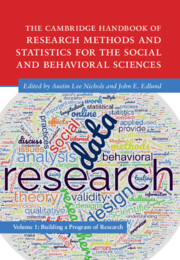 The Cambridge Handbook of Research Methods and Statistics for the Social and Behavioral Sciences
The Cambridge Handbook of Research Methods and Statistics for the Social and Behavioral Sciences from Part II - The Building Blocks of a Study
Published online by Cambridge University Press: 25 May 2023
This chapter focuses on informed consent, the cornerstone of conducting ethical human subjects research. It presents a brief history of the origins of informed consent to research and reviews codes, guidelines, and regulations that have been established in response to ethical violations carried out in the name of science. The chapter reviews the essential elements of consent (i.e., intelligence, knowingness, and voluntariness) and discusses challenges that researchers may encounter within each of these areas. Importantly, it approaches consent as an ongoing process rather than a one-time-event and presents practical and empirically supported strategies that researchers can apply to assess and enhance individuals’ capacity, understanding, and autonomy as it pertains to research participation. Additional topics discussed include assent to research that involves children, electronic and multimedia consent, and consent to research using biospecimens.
To save this book to your Kindle, first ensure [email protected] is added to your Approved Personal Document E-mail List under your Personal Document Settings on the Manage Your Content and Devices page of your Amazon account. Then enter the ‘name’ part of your Kindle email address below. Find out more about saving to your Kindle.
Note you can select to save to either the @free.kindle.com or @kindle.com variations. ‘@free.kindle.com’ emails are free but can only be saved to your device when it is connected to wi-fi. ‘@kindle.com’ emails can be delivered even when you are not connected to wi-fi, but note that service fees apply.
Find out more about the Kindle Personal Document Service.
To save content items to your account, please confirm that you agree to abide by our usage policies. If this is the first time you use this feature, you will be asked to authorise Cambridge Core to connect with your account. Find out more about saving content to Dropbox.
To save content items to your account, please confirm that you agree to abide by our usage policies. If this is the first time you use this feature, you will be asked to authorise Cambridge Core to connect with your account. Find out more about saving content to Google Drive.